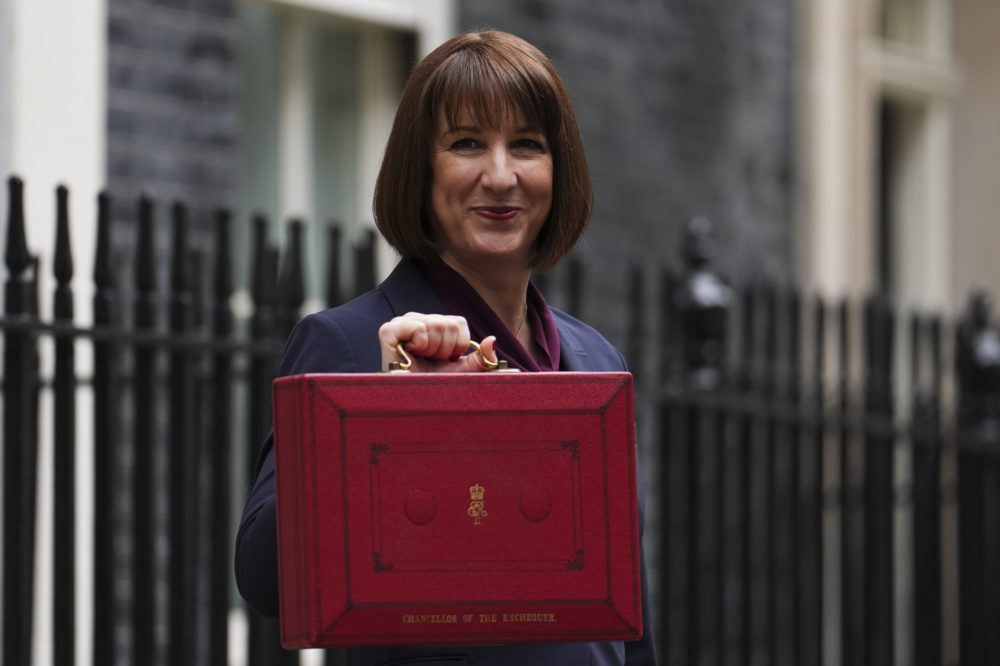National Insurance rise creates major funding crisis for voluntary organisations

Martin Shipton
Leaders of third sector organisations that provide vital public services, often on contract to local authorities, say they are facing huge financial problems because of the forthcoming rise in employers’ National Insurance Contributions.
Chancellor Rachel Reeves announced in her Autumn Budget that the rate of NICs paid by employers in the UK will increase from 13.8% to 15% from April 6 2025.
At the same time the threshold at which employers start to pay NICs will be reduced to £5,000 per year from £9,100.
Ms Reeves claimed the rise was necessary as part of a package of measures to stabilise the economy.
But business leaders and some economists have warned that it will act as a disincentive to employers when deciding whether to take on more staff or offer pay increases. In some cases, it may be the last straw that forces businesses to close.
Mainstream public sector organisations like the NHS and local authorities will be exempt from the rise, but third sector bodies that provide services to councils, including caring, sport and cultural activities will not be covered, and will be expected to find the extra NIC funds from their own existing budgets.
‘Deeply disappointed’
Natalie Zhivkova, policy and insights manager at the Wales Council for Voluntary Action (WCVA), which represents third sector bodies, said: “We are deeply disappointed Welsh Government’s draft budget makes no reference to measures aimed at mitigating the impact of increased Employer National Insurance Contributions and the National Living Wage on voluntary organisations in Wales. We are calling on Welsh Government Cabinet Secretaries, health boards and local authorities to move swiftly and pass on a fair and proportionate amount of their substantial budget increases to vital voluntary sector services through public contract/grant uplifts and multi-year funding.”
She added: “I can confirm Welsh Government has not earmarked any money to alleviate the NI increase. As far as we know, they have also not given guidance to local authorities and other public bodies to address this in their budgets either. We find this very disappointing and concerning.
“ Some 84% of the organisations we have surveyed told us they are concerned about their ability to afford the rise in Employer NICs, with 50% stating they are ‘very concerned’. 77% expressed concern about affording the new NLW.
To accommodate these substantial increases:
* 50% of organisation are considering using more charity reserves
* 40% are considering not offering pay rises to match inflation
* 34% may reduce the number of full-time staff
* 26% may reduce the number of part-time staff
* 24% are considering reducing service delivery
*14% are considering service closure
Impact
Ms Zhivkova said: “We have a variety of examples of how the NI increase would impact the sector in Wales. The individual impact is highly dependent on the organisational structure, the number of part time staff and other factors besides annual turnover, so we are eager to show this nuance instead of quoting an average increase figure.”
Examples of the impact on individual organisations include:
* Name redacted: £117,000
* GVS: £12,000
* Kidney Wales: £3,000
* Tenovus Cancer Care: £250,000
* Marie Curie: £258,000
* Citizen’s Advice Pembrokeshire: £13,000
* PAVS: £15,000
* PLANED: £10,000
* Wastesavers Charitable Trust: £107,000
* Cwm Taf Morgannwg Mind: £120,000
* Age Connects Morgannwg: £47,000
* Name redacted: £16,000.
Draft budget
A section of the Welsh Government’s draft Budget for 2025-26 states: “The UK Government confirmed, as part of the UK Autumn Budget, that devolved governments would be provided with additional funding to help mitigate the cost of increased employers’ NICs to support devolved public services, over and above the funding allocated in the UK Budget. The UK Government has confirmed it will use the official Office for National Statistics’ definition of a public service employee for this purpose. We are continuing to work collaboratively with HM Treasury to clarify the level of this support, to inform our budget planning. This funding has not yet been provided to the Welsh Government and so does not form part of this draft Budget.”
A Welsh Government spokesperson told us: “We recognise the concern among third sector organisations about the changes to employers’ National Insurance contributions made by the UK Government.
“The third sector in Wales provides crucial services to communities and people most in need of support. Our third sector support infrastructure helps the sector play this important role.
“In the draft Budget 2025-26 we have committed to a three-year funding agreement for Third Sector Support Wales comprising £25.8m, an increase of 7%. We will respond to [the WCVA’s) letter in due course.”
Support our Nation today
For the price of a cup of coffee a month you can help us create an independent, not-for-profit, national news service for the people of Wales, by the people of Wales.





Kids should not be allowed to get anywhere near firearms, as they can inflict damage on themselves and others. Rachel should not be allowed anywhere near the economy as she is harming a huge segment of the entire nation with only the seriously rich able to absorb the personal cost.